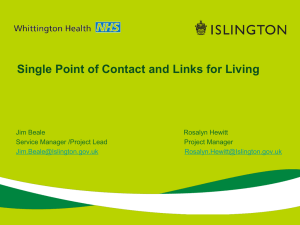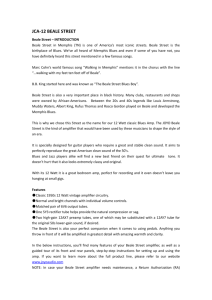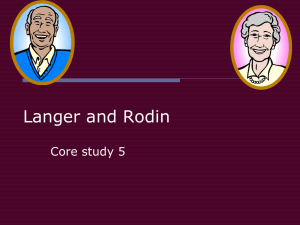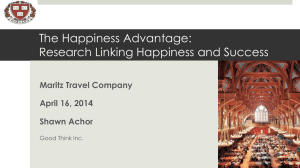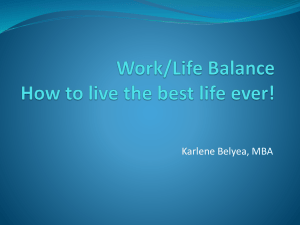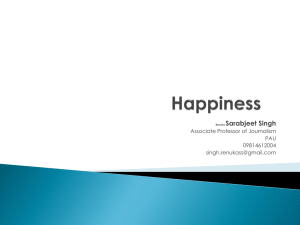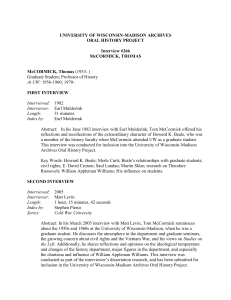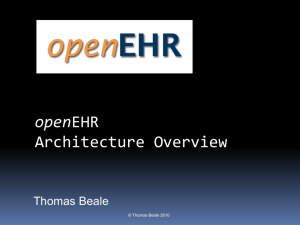Reflective Summary Sample - Valdosta State University
advertisement
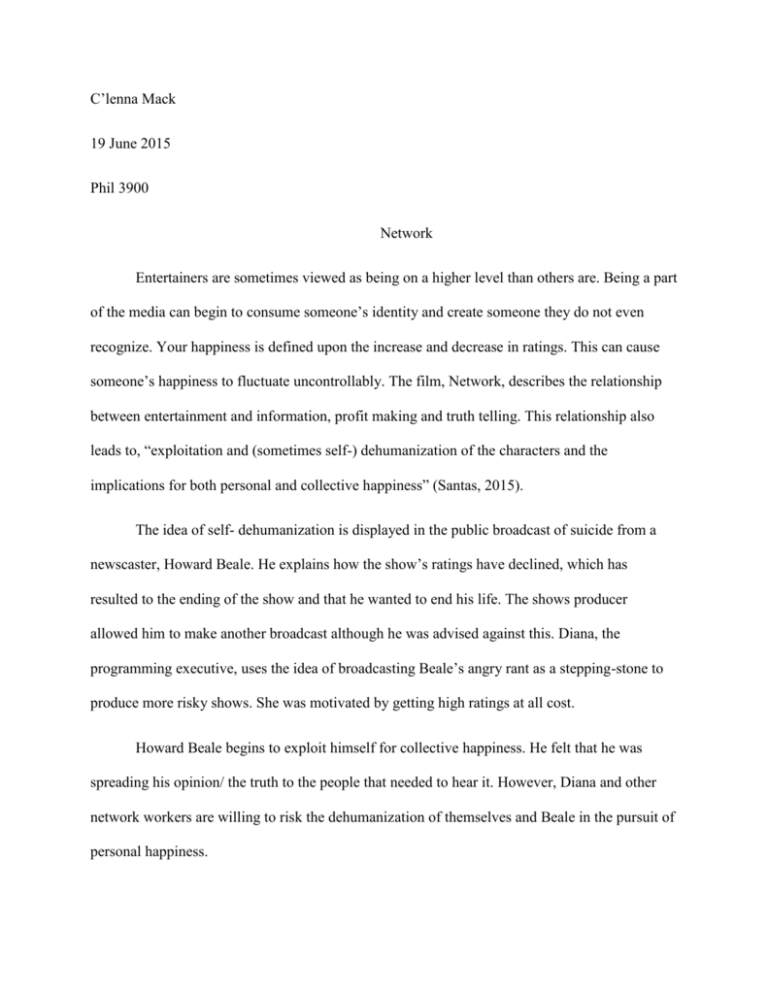
C’lenna Mack 19 June 2015 Phil 3900 Network Entertainers are sometimes viewed as being on a higher level than others are. Being a part of the media can begin to consume someone’s identity and create someone they do not even recognize. Your happiness is defined upon the increase and decrease in ratings. This can cause someone’s happiness to fluctuate uncontrollably. The film, Network, describes the relationship between entertainment and information, profit making and truth telling. This relationship also leads to, “exploitation and (sometimes self-) dehumanization of the characters and the implications for both personal and collective happiness” (Santas, 2015). The idea of self- dehumanization is displayed in the public broadcast of suicide from a newscaster, Howard Beale. He explains how the show’s ratings have declined, which has resulted to the ending of the show and that he wanted to end his life. The shows producer allowed him to make another broadcast although he was advised against this. Diana, the programming executive, uses the idea of broadcasting Beale’s angry rant as a stepping-stone to produce more risky shows. She was motivated by getting high ratings at all cost. Howard Beale begins to exploit himself for collective happiness. He felt that he was spreading his opinion/ the truth to the people that needed to hear it. However, Diana and other network workers are willing to risk the dehumanization of themselves and Beale in the pursuit of personal happiness. Television presents entertaining subjects but they present everything as if they are all entertaining, such as crime, suicide, individual’s personal lives, etc. Howard Beale is being used as a ratings mule. As long as his “mad man” show is a hit, they will exploit him. They try to make his show seems as if it is entertainment, when there is something emotionally and psychology wrong with him. He makes comments about killing himself, talking to a faceless voice and change in appearance/ speech. He begins to preach to his audience that they should get mad and start shouting, “I’m mad as hell and I’m not gone take this anymore”. The Howard Beale show began to skyrocket and Diana begins to find more shows to exploit. Public understanding of politics, news, education, religion, science, sports, etc. is shaped by the biases of television. Howard then states that the news is an amusement park. They will tell you anything and lie. They will do anything that the television tells them to do. He begins to tell the audience to stop watching the television, they need to turn f the television and stop depend upon it for facts. The four arguments of eliminating television align with the issues displayed in, Network by Beale. The argument states, eliminate personal knowledge, points of comparisons, separate people from each other, unify experience, occupy the mind, encourage drug use, centralize knowledge, and redefine happiness. The arguments displayed in the film were pointed out by Beale.This eliminates personal knowledge by broadcasting false information and structuring the shows that are produced. The networks occupy he mind and fill it with misconceptions. Redefines happiness by displaying to people what should make them happy, by creating false realities. Beale wanted to reveal the truth. Since the beginning of television, it has been an issue with creating false perception. Entertainment can lead to the exploitation and dehumanization of our self and others. The need for ratings can make a person degrade himself or herself and others just to advance themselves and humiliate others. Prouder such as Diana, will go beyond limits just to raise show ratings. The media displays everything as entertaining, even if there is nothing entertaining about the subject matter. Beale begins to express his viewers that the government is poisoning our minds and that television should be turned off. The lies and the construction of happiness made by the media should be ignored.

